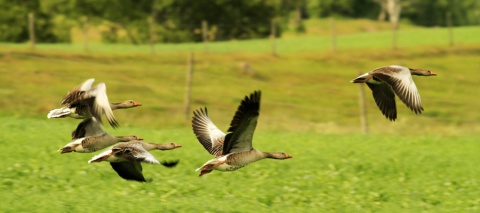
07 Dec 2016 FITNESS CHECK OF NATURE LEGISLATION: DIRECTIVES TO REMAIN CLOSED AND IMPLEMENTATION ACTION PLAN TO BE DEVELOPED
On the 7 December 2016, EU Commissioners confirmed the next steps of the Fitness Check of the Birds and Habitats Directives.
Thus far, the extensive consultation process has pointed to the need for better implementation, increased funding for nature conservation, and fully addressing the drivers of biodiversity loss in the wider countryside.
On the basis of today’s debate, the European Commission will develop an implementation Action Plan to improve implementation of the Birds and Habitats Directives. This Action Plan will likely contain a series of measures such as additional guidance, better dialogue and financing to address implementation challenges and help Member States take the necessary corrective actions.
FACE was involved in all stages of the consultation process. Going forward, FACE will be urging the European Commission to pursue a more effective implementation of the directives. This should include greater recognition of the sustainable use of wildlife, which provides a positive basis for conservation as acknowledged in the text of the directives. The following points outline FACE’s position on the Fitness Check of the Nature Directives:
The Nature Directives are appropriate instruments for wildlife conservation and management, including sustainable use. Their implementation should be based on scientific principles and sound evidence.
Under the principle of subsidiarity, Member States should have greater flexibility on the management of large carnivores to improve rural/local acceptance towards these species in order to reach the objectives of the directives.
Review the application of Article 9 (Birds Directive) for ecologically sound small-scale hunting practices in accordance with the cultural requirements of EU citizens and to reduce conflict and improve rural/local acceptance of abundant species.
Greater emphasis on conservation of habitats particularly outside of protected areas and priority for species action that have the poorest status in comparison to more charismatic species. More is needed to prevent structural pressures to biodiversity from important EU policies.
Management plans within Natura 2000 sites should be better targeted to make use of hunters’ knowledge, experience and motivation for conservation.
FACE will continue to call on the EU for more recognition of hunters in their role in delivering environmental objectives. Equally, FACE calls for greater understanding of the importance of hunting for 7 million Europeans, and that their role in delivering the strategic objectives of the directives is better recognised.
Read more:
– FACE Statement on the Fitness Check
– Fitness Check Evaluation Report

